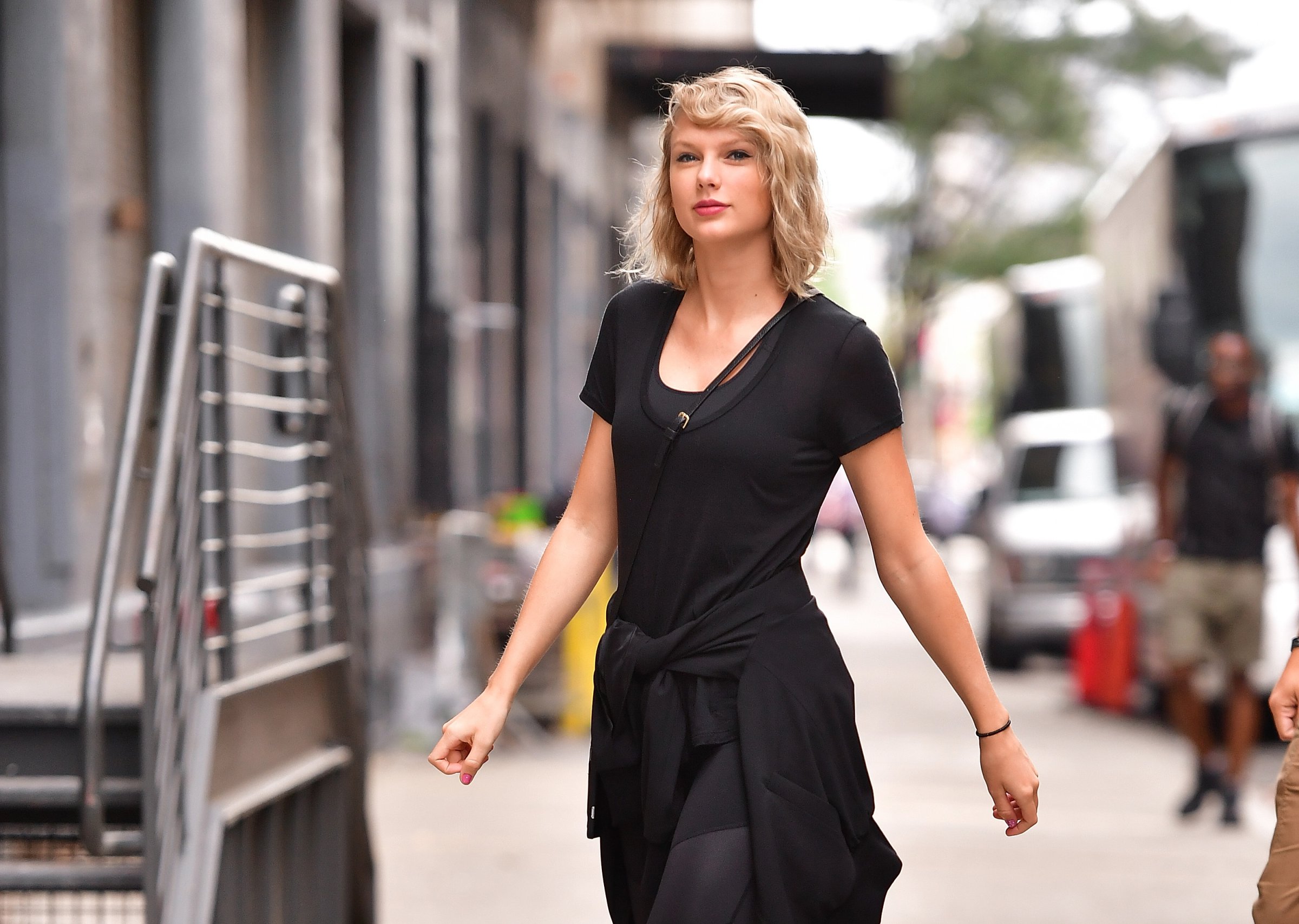
Taylor Swift asked a judge to seal “extremely personal and sensitive” photographs that she claims prove she was groped by a Colorado radio host, the Denver Post reports.
David Mueller, a former Colorado radio host, sued Swift in September 2015, alleging that he was fired from his job on 98.5 KYGO’s “Ryno and Jackson“ show after Swift’s security accused him of touching her butt backstage at one of the singer’s 2013 concerts. Mueller denied the allegations, and claimed a colleague groped Swift, according to the Post.
“The radio station was given evidence immediately after the incident. They made their independent decision,” a spokesperson for Swift said in a statement to People after Mueller filed his lawsuit. In October 2015, Swift countersued Mueller, alleging that he had “intentionally reached under her skirt, and groped with his hand an intimate part of her body in an inappropriate manner, against her will, and without her permission.”
Now, Swift wants to assure that the public — and the media — don’t get to see the court documents and photographs that describe the incident in detail. In a motion, released Thursday by the Denver Post after being filed in the Denver U.S. District Court last Friday, lawyers for Swift claim that making the documents public would infringe on the singer’s privacy.
“It is all but assured that the photographs will be shared for scandalous and prurient interests — reasons that have nothing to do with the public’s interest in the Court’s decision making,” the motion says. “The public’s interest in knowing the facts of this case at this juncture is outweighed given the extremely sensitive and private nature of the alleged assault and alleged defamatory statements.”
The motion also charged that the release of these documents and photographs would prompt media coverage that could contaminate the jury pool.
“As a simple Google search will show, substantial media attention is being paid to this action. Given this attention, the Motion and its contents will undoubtedly be reported at length,” the motion reads. “Potential jurors will be exposed to the media’s version of issues in this case, running the very real risk of tainting or limiting the jury pool.”
More Must-Reads from TIME
- Donald Trump Is TIME's 2024 Person of the Year
- Why We Chose Trump as Person of the Year
- Is Intermittent Fasting Good or Bad for You?
- The 100 Must-Read Books of 2024
- The 20 Best Christmas TV Episodes
- Column: If Optimism Feels Ridiculous Now, Try Hope
- The Future of Climate Action Is Trade Policy
- Merle Bombardieri Is Helping People Make the Baby Decision
Write to Samantha Cooney at samantha.cooney@time.com